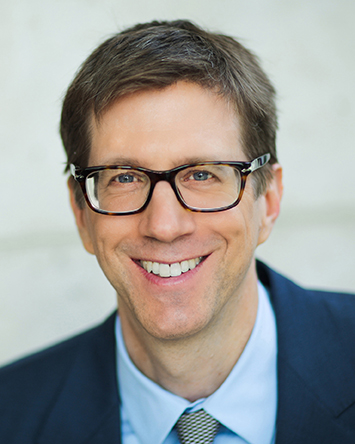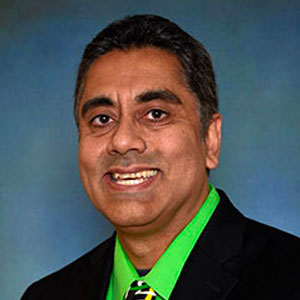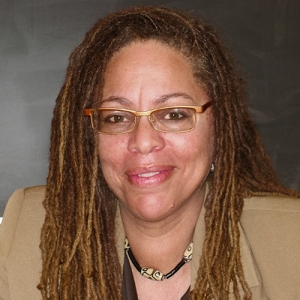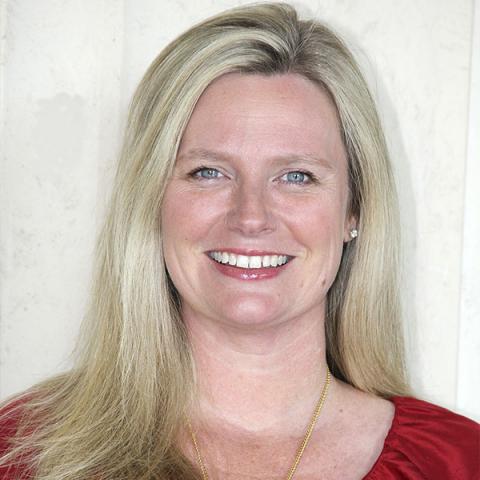Date: Monday, June 20, 2022, 2:00 – 3:00 PM ET
Webinar Description:
During the next term, the Supreme Court of the United States will decide two consolidated cases challenging colleges’ affirmative-action admissions policies. Some pundits predict that the Court will overrule its previous holding in Fisher v. University of Texas, which upheld the University of Texas’ consideration of race in its undergraduate admissions process. Please join an esteemed panel to learn more about these cases and how law schools might forge a path forward if race may no longer be considered in our admissions policies. Panelists will provide strategies they used to diversify their law school classes in states that restrict the use of race in admissions.
Learning Objective:
Click Here to Register for the Webinar
*Registration is required.

Dean Richard Bierschbach, J.D., Dean and Professor of Law, Wayne State University Law School
Richard A. Bierschbach is Dean and Professor of Law at Wayne State University Law School. He previously taught at Yeshiva University’s Benjamin N. Cardozo School of Law in New York, where he also served as Vice Dean.
Dean Bierschbach is an award-winning teacher and a leading scholar of criminal law and procedure. His research explores how the criminal justice system’s institutional and procedural structure intersects with its substantive and regulatory aims. His work has appeared in numerous top law journals, including the Yale Law Journal, the Michigan Law Review, the Virginia Law Review, the University of Pennsylvania Law Review, the Northwestern University Law Review, and the Georgetown Law Journal, among others. While at Cardozo, he twice received the Best Professor Award from the law school’s graduating class.
Before entering academia, Dean Bierschbach clerked for Judge A. Raymond Randolph of the U.S. Court of Appeals for the D.C. Circuit (1997-98) and Justice Sandra Day O’Connor of the U.S. Supreme Court (2000-01). Between those clerkships, he served as a Bristow Fellow in the U.S. Department of Justice’s Office of the Solicitor General and an Attorney-Advisor in the Justice Department’s Office of Legal Counsel. He has also worked in the New York offices of three international law firms—Wilmer, Cutler & Pickering (now WilmerHale), Gibson, Dunn & Crutcher, and Orrick, Herrington & Sutcliffe—as a member of their Supreme Court and appellate litigation practices.
Dean Bierschbach received his bachelor’s degree in history (summa cum laude) from the University of Michigan (1994) and his law degree from the University of Michigan Law School (1997), where he won the Daniel H. Grady Prize for graduating first in his class and the Henry M. Bates Award, the law school’s highest honor. He has held various leadership positions within the American Bar Association and is an elected member of the American Law Institute and a Life Fellow of the American Bar Foundation.
 Professor Vinay Harpalani, J.D., Associate Professor of Law, University of New Mexico Law School
Professor Vinay Harpalani, J.D., Associate Professor of Law, University of New Mexico Law School
 Professor Devon Carbado, J.D., The Honorable Harry Pregerson Professor of Law, UCLA Law School
Professor Devon Carbado, J.D., The Honorable Harry Pregerson Professor of Law, UCLA Law SchoolDevon Carbado is the Honorable Harry Pregerson Professor of Law at UCLA School of Law and the former Associate Vice Chancellor of BruinX for Equity, Diversity and Inclusion. He teaches Constitutional Criminal Procedure, Constitutional Law, Critical Race Theory, and Criminal Adjudication. He has won numerous teaching awards, including being elected Professor of the Year by the UCLA School of Law classes of 2000 and 2006 and received the Law School’s Rutter Award for Excellence in Teaching in 2003 and the University’s Distinguished Teaching Award, the Eby Award for the Art of Teaching in 2007. In 2005 Professor Carbado was an inaugural recipient of the Fletcher Foundation Fellowship. Modeled on the Guggenheim fellowships, it is awarded to scholars whose work furthers the goals of Brown v. Board of Education. In 2018, he was named an inaugural recipient of the Atlantic Philanthropies Fellowship for Racial Equity.
Professor Carbado writes in the areas of employment discrimination, criminal procedure, implicit bias, constitutional law, and critical race theory. His scholarship appears in law reviews at UCLA, Berkeley, Harvard, Michigan, Cornell, and Yale, among other venues. He is the author of Acting White? Rethinking Race in “Post-Racial” America (Oxford University Press) (with Mitu Gulati) and the editor of several volumes, including Race Law Stories (Foundation Press) (with Rachel Moran), The Long Walk to Freedom: Runaway Slave Narratives (Beacon Press) (with Donald Weise), and Time on Two Crosses: The Collective Writings of Bayard Rustin (Cleis Press) (with Donald Weise). A board member of the African American Policy Forum, Professor Carbado was the Shikes Fellow in Civil Liberties and Visiting Professor of Law at Harvard Law School in 2012.
Professor Carbado graduated from Harvard Law School in 1994. At Harvard, he was editor-in-chief of the Harvard Black Letter Law Journal, a member of the Board of Student Advisors, and winner of the Northeast Frederick Douglass Moot Court Competition. Carbado joined the UCLA School of Law faculty in 1997. He served as Vice Dean for Faculty and Research at the School of Law from 2006-07, and again in 2009-10. Professor Carbado is currently working on a series of articles on affirmative action and a book on race, law, and police violence.
 Professor Cheryl Harris, J.D., Vice Dean for Community, Equality and Justice, Rosalinde and Arthur Gilbert Professor in Civil Rights and Civil Liberties, UCLA Law School
Professor Cheryl Harris, J.D., Vice Dean for Community, Equality and Justice, Rosalinde and Arthur Gilbert Professor in Civil Rights and Civil Liberties, UCLA Law SchoolCheryl I. Harris is the Rosalinde and Arthur Gilbert Foundation Chair in Civil Rights and Civil Liberties at UCLA School of Law where she teaches Constitutional Law, Civil Rights, Employment Discrimination, Critical Race Theory and Race Conscious Remedies.
A graduate of Wellesley College and Northwestern School of Law, Professor Harris began her teaching career in 1990 at Chicago- Kent College of Law after working for one of Chicago’s leading criminal defense firms and later serving as a senior legal advisor in the City Attorney’s office as part of the reform administration of Mayor Harold Washington of Chicago. The interconnections between racial theory, civil rights practice, politics, and human rights have been important to her work. She was a key organizer of several major conferences that helped establish a dialogue between U.S. legal scholars and South African lawyers during the development of South Africa’s first democratic constitution. This work played a significant role in the production of her acclaimed and influential article, “Whiteness as Property” (Harvard Law Review).
Since joining the UCLA Law faculty in 1998, Professor Harris has continued to produce groundbreaking scholarship in the field of Critical Race Theory, particularly engaging the issue of how racial frames shape our understanding and interpretation of significant events like Hurricane Katrina—(“Whitewashing Race”, in California Law Review), admissions policies (“The New Racial Preferences” in California Law Review)(with Carbado) and anti-discrimination law (“Reading Ricci: Whitening Discrimination, Race-ing Test Fairness” in UCLA Law Review) (with West-Faulcon).
She has also lectured widely on issues of race and equality at leading institutions here and abroad, including in Europe, South Africa, and Australia, and has been a frequent contributor to various media outlets on current events and cases involving race and equality.
Professor Harris has served as a consultant to the MacArthur Foundation and has been on the board of leading academic societies, including the American Studies Association. She has served as faculty director for the Critical Race Studies Program at UCLA Law School and has been widely recognized as a groundbreaking teacher in the area of civil rights education, receiving the ACLU Foundation of Southern California’s Distinguished Professor Award for Civil Rights Education.
 Dean Johanna Kalb, J.D., Dean and Professor of Law, Health Law & Policy Program, University of Idaho College of Law
Dean Johanna Kalb, J.D., Dean and Professor of Law, Health Law & Policy Program, University of Idaho College of LawJohanna Kalb was appointed to serve as the Dean of the University of Idaho College of Law in May 2021. She is the first woman to serve in this role. Prior to her deanship, Dean Kalb was the Associate Dean of Administration and Special Initiatives and Edward J. Womac Jr. Distinguished Professor of Law at Loyola University New Orleans School of Law. Her research and teaching interests include constitutional law, federal courts, and the law of detention and democracy. She is a co-author, with Martha F. Davis and Risa Kaufman of the first law school textbook focused on domestic human rights, Human Rights Advocacy in the United States (West, 2014). Her recent scholarship appears in U.C. Irvine Law Review, the Yale Journal of International Law, the Yale Law and Policy Review, and the Stanford Journal of Civil Rights and Civil Liberties, as well as the Washington Law Review Online, the NYU Law Review Online, and the Yale Law Journal Forum.
From 2014 to 2016, Kalb served as Visiting Associate Professor of Law and Director of the Arthur Liman Public Interest Program at Yale Law School. Dean Kalb is a fellow in the Democracy Program at the Brennan Center for Justice at NYU School of Law and an academic fellow of the Pounds Civil Justice Institute.
Dean Kalb is a graduate of Yale Law School and the Johns Hopkins University School of Advanced International Studies where she completed her M.A. in International Relations with a focus on African Studies. After law school, she served as a clerk for the Honorable E. Grady Jolly of the United States Court of Appeals for the Fifth Circuit and the Honorable Ellen Segal Huvelle of the District Court of the District of Columbia. She is admitted to practice in the States of Mississippi and New York.
 Cary Cluck, J.D., Assistant Dean of Admissions & Financial Aid, University of Arizona James E. Rogers College of Law
Cary Cluck, J.D., Assistant Dean of Admissions & Financial Aid, University of Arizona James E. Rogers College of LawCary Lee Cluck is assistant dean of admissions and financial aid at the University of Arizona James E. Rogers College of Law. Cluck previously served in administration at the University of Mississippi School of Law for 15 years, first as assistant dean for student affairs and then as assistant dean for admissions and scholarships. Cluck earned her JD from the University of Mississippi. Before working in law school administration, she was a judicial clerk for the Tenth District Chancery Court in Mississippi; she also lived and worked in Washington, DC. Dean Cluck has served on the university’s Commission on the Status of Women, as state treasurer for the American Association of University Women (AAUW), and on the Leadership Lafayette Steering Committee. She previously chaired the LSAC Newcomers Workshop Planning Work Group and has served on the LSAC Annual Meeting Planning Work Group and currently serves on the LSAC Misconduct and Irregularities Committee